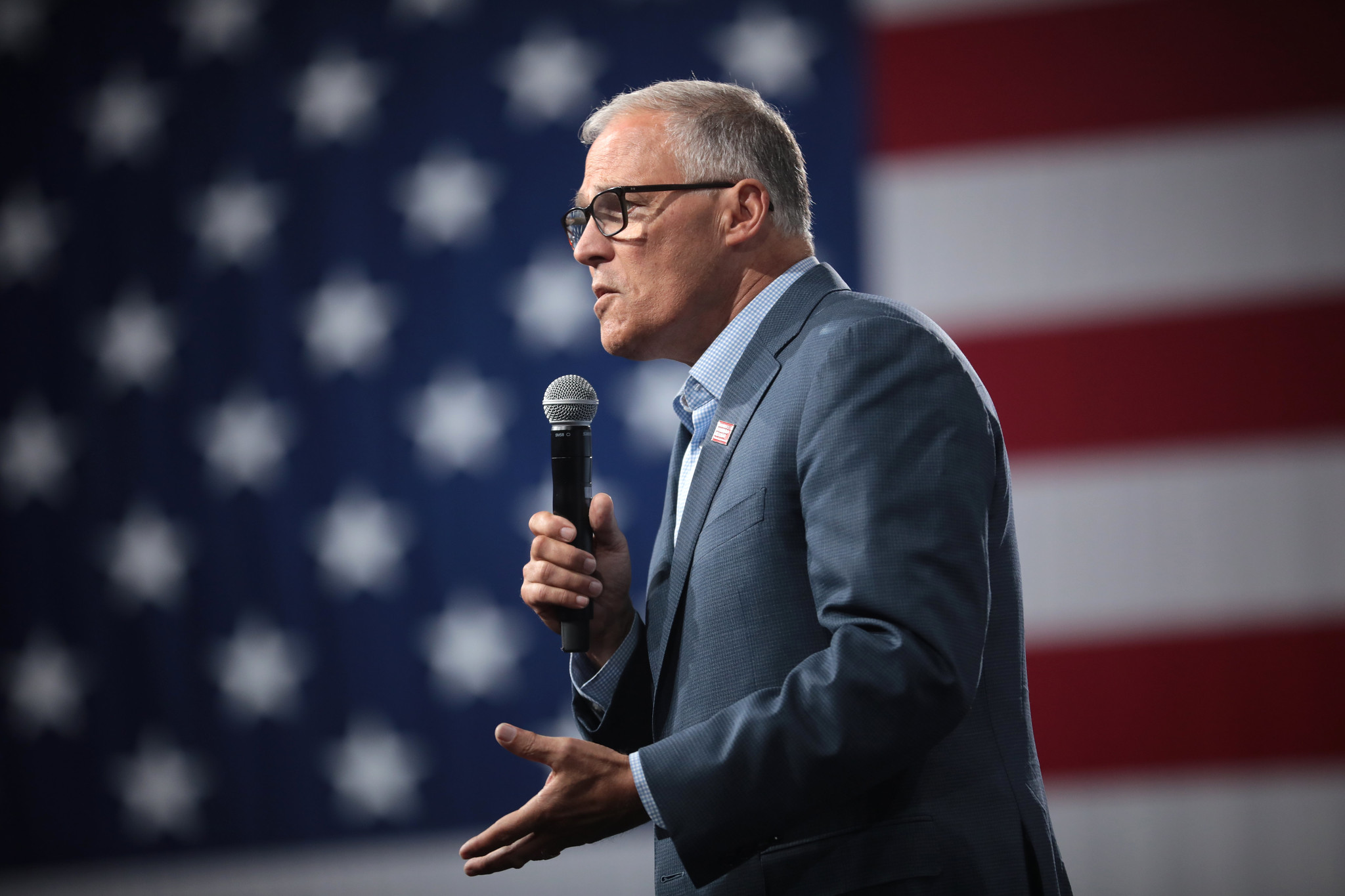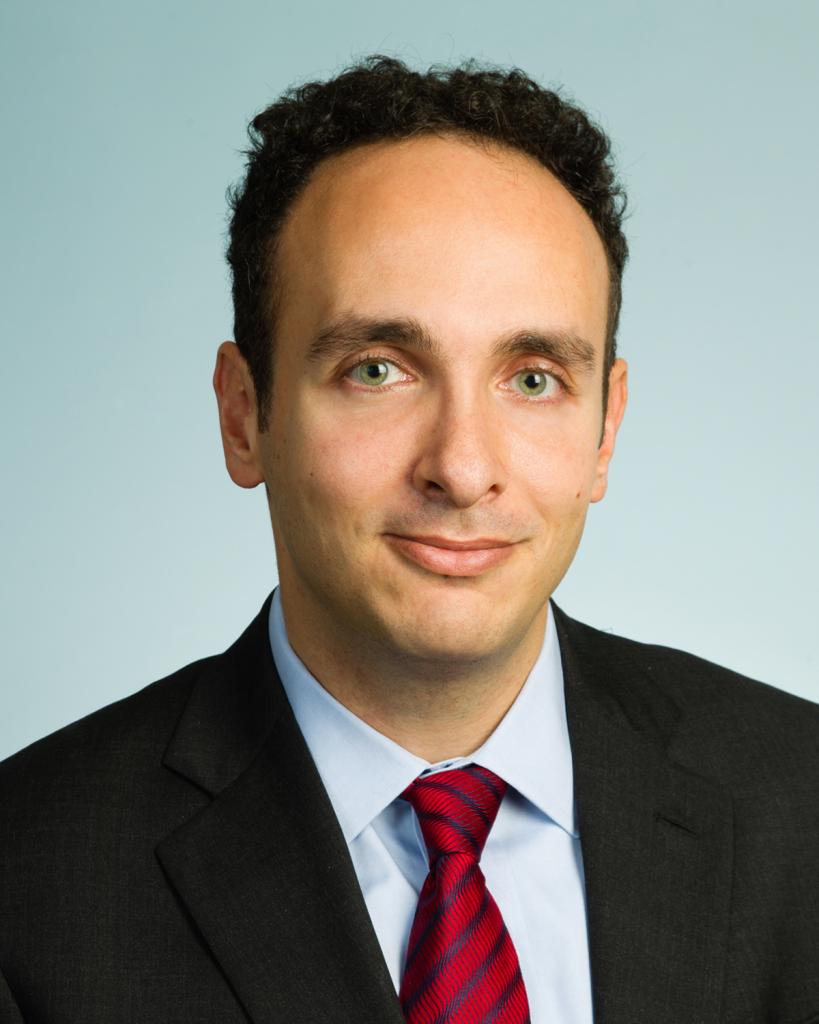Washington’s Election Misinformation Bill Demonstrates Dangers of Compromising First Amendment Values
Washington Governor Jay Inslee's support for a bill that “would outlaw attempts by candidates and elected officials to spread lies about free and fair elections when it has the likelihood to stoke violence” raises substantial First Amendment problems.

Exactly one year after the Jan. 6 violence at the Capitol, Washington Governor Jay Inslee announced his support for a bill that his office said “would outlaw attempts by candidates and elected officials to spread lies about free and fair elections when it has the likelihood to stoke violence.” That bill would make such lies a gross misdemeanor, subject to up to 364 days in jail.
Inslee’s motives are laudable. But his solution—jailing people for political speech—raises substantial First Amendment problems. The debate playing out in Washington state is a broader illustration of the fragility of the robust First Amendment protections that courts have provided to speech for the past century. Some officials and commentators across the political spectrum are increasingly willing to sacrifice core free speech protections to address the problems of the day. And this illiberal trend should concern everyone, regardless of partisan affiliation.
In the press release, Inslee’s office tried to avoid First Amendment concerns by citing a 1969 Supreme Court case, Brandenburg v. Ohio, for the assertion that the Supreme Court “has made it clear that speech can be limited where it is likely to incite lawlessness.” That is a partial and misleading representation of the court’s holding. In Brandenburg, the Supreme Court reversed the conviction of an Ohio Ku Klux Klan leader, reasoning that “the constitutional guarantees of free speech and free press do not permit a State to forbid or proscribe advocacy of the use of force or of law violation except where such advocacy is directed to inciting or producing imminent lawless action and is likely to incite or produce such action.” The court’s requirement of imminence, and that the advocacy be “directed to” inciting or producing that action, makes this a very high bar for prosecutors to overcome.
Inslee also told the media that lying about elections is “yelling ‘fire’ in a crowded theater.” That justification also falls flat. As I wrote recently, that line comes from a 1919 Supreme Court opinion that allowed speech restrictions that posed a “clear and present danger,” a standard that the court overturned in Brandenburg.
Legislators released the bill’s text a few days later, and it is both ineffective and chilling. To the drafters’ credit, they largely use the Brandenburg standard, creating a gross misdemeanor for an elected official or candidate who:
knowingly makes false statements or claims regarding the election process or election results, which statements or claims are made for the purpose of undermining the election process or election results and are directed to inciting or producing imminent lawless action and such statements or claims produce such action, related to any election conducted in the state.
The bill would be ineffective because the Brandenburg standard is incredibly difficult to meet, and it is hard to conceive of many false election claims that would surpass this hurdle.
Although prosecutors would have trouble convicting people under this bill, it still raises substantial free speech concerns due to its chilling effect. The bill broadly defines “knowingly makes false statements or claims” as “any statements or claims that are publicly made by an elected official or candidate for which there is no proof or evidence,” sweeping in a wide swath of modern political discourse. Even if a politician would not ultimately be convicted, the possibility of prosecution would likely cause the politician to think twice before criticizing election administration. Why take the risk of defending against charges, perhaps from a prosecutor who holds different partisan affiliation?
To be sure, First Amendment protections are not absolute. Current law allows liability for defamation, false advertising, fraud, perjury and other speech. But courts have set high bars for this liability. And courts are particularly hesitant to regulate political speech, especially when the penalty is jail. As Justice Anthony Kennedy wrote in a 2012 opinion striking down a ruling that criminalized lies about military honors, “our constitutional tradition stands against the idea that we need Oceania’s Ministry of Truth.”
The bill also could have an unintended effect of further undermining public confidence in voting. The bill’s findings begin with a boast about Washington state’s elections system. “The state of Washington is a leader in the country regarding election security and voter accessibility,” the legislators wrote. State elections officials appear to have a strong factual record to rebut false claims of elections fraud. If prosecutors begin threatening critics with jail time, those critics might actually appear more credible. I do not intend to understate the difficulty of countering the torrent of misinformation about elections, but I question the efficacy of a solution that relies on the threat of prosecuting politicians.
The Washington state bill is not the only proposal to impose new speech regulations as a solution for modern problems. A New York state legislator recently introduced a bill that prohibits online platforms from algorithmically promoting a few categories of information, including “a false statement of fact or fraudulent medical theory that is likely to endanger the safety or health of the public.” Likewise, a bill introduced in Congress last year would increase the threat of liability for platforms that algorithmically promote health misinformation during public health emergencies, and would leave it to the secretary of health and human services to unilaterally define what constitutes “health misinformation.” A recently introduced Florida bill would penalize professional sports teams that do not play the national anthem. New laws in Texas and Florida attempt to restrict the ability of private platforms to moderate content or deplatform users, though courts have preliminarily enjoined both laws. And two Supreme Court justices have called for the court to reconsider New York Times v. Sullivan, a 1964 ruling that requires public officials to meet the high bar of “actual malice” in defamation lawsuits.
Policymakers should not minimize the challenges the nation faces with misinformation, the power of large platforms and the harms that online speech can cause. But they should avoid the immediate impulse to regulate their way out of these problems. New speech restrictions sound like easy solutions, but they often do not solve the problems and may actually worsen the situation.




.png?sfvrsn=48e6afb0_5)
